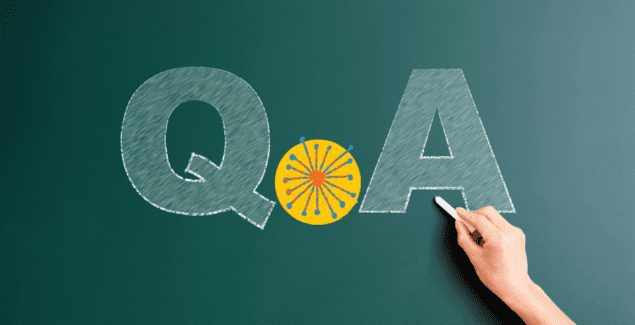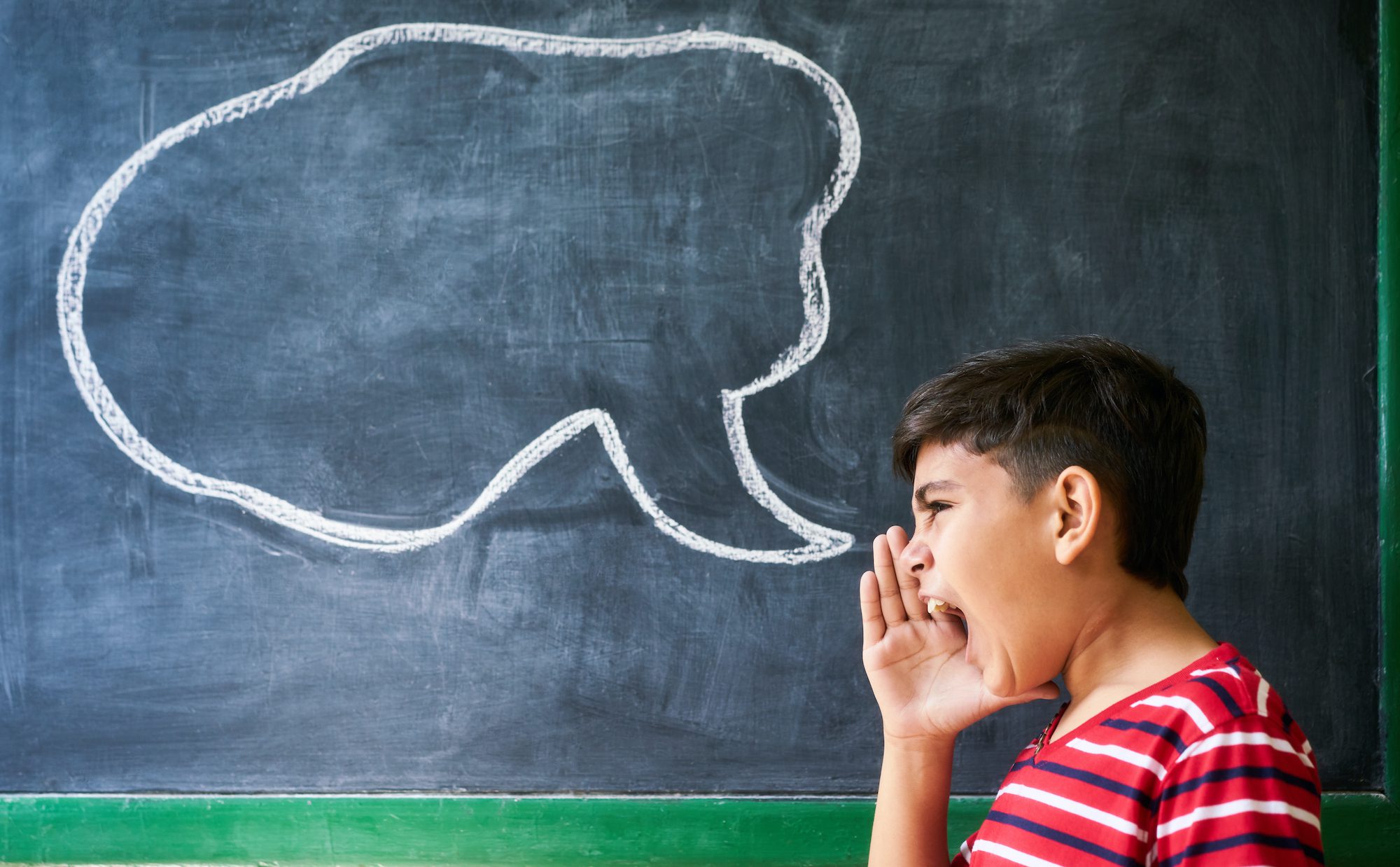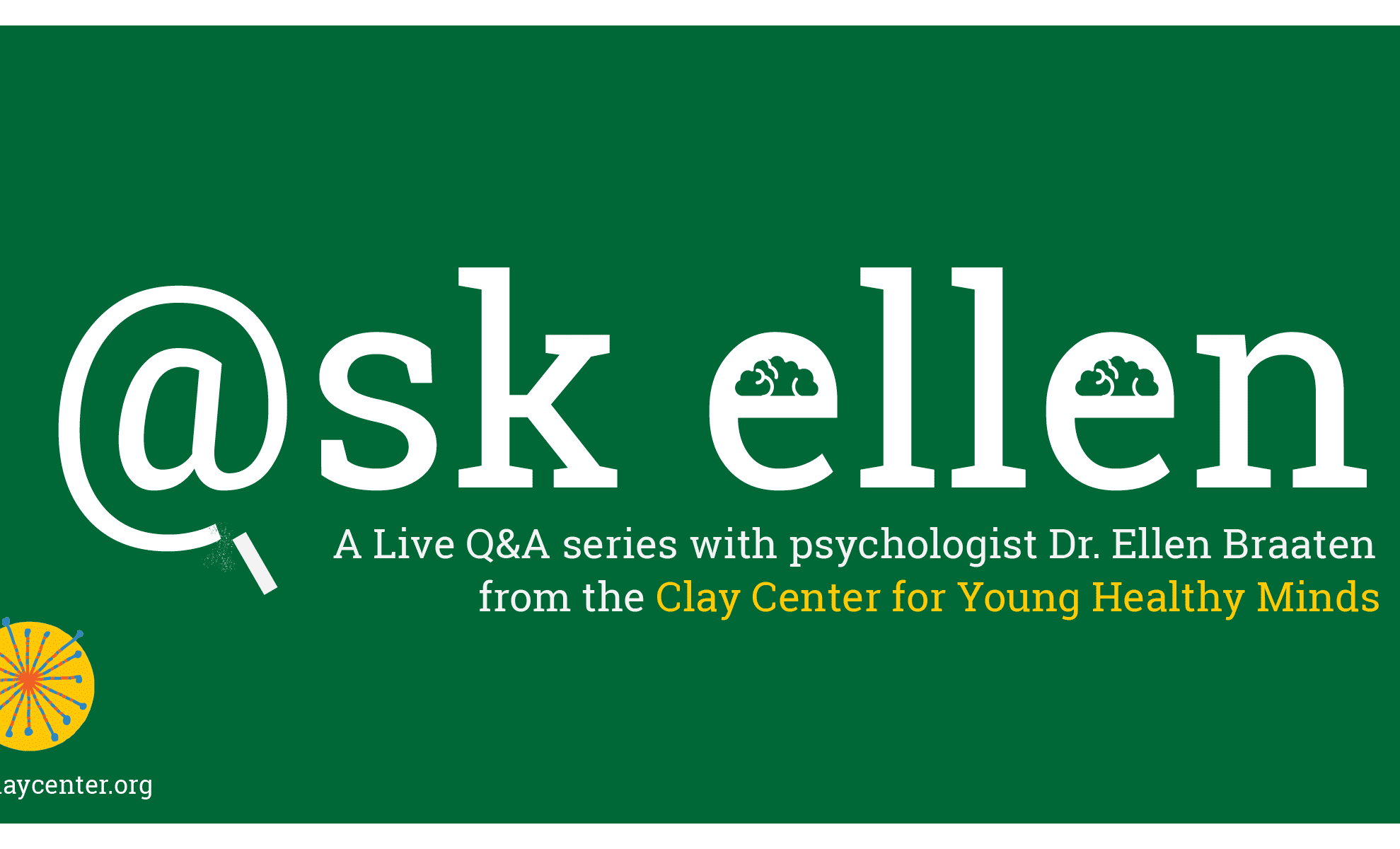Q+A: How Can I Help My Child Control Thoughts That Fuel Anger?

Posted in: Parenting Concerns, You & Your Family
Topics: Behavioral Issues, Q+A
We all have things that cause our anger to flare – waiting in long lines; feeling dismissed by a friend or family member; feeling that another person is treating us unfairly or not paying attention to what we are saying. And once we are angry, the thoughts that arise while in this state can cause the anger to grow even more or become explosive. While the anger itself may be justified and based on a real situation (like being criticized or disregarded by a family member), it can become exaggerated, distorted, and even catastrophic.
Let’s say your teenager is dissed by a close friend or not invited to a party. Their thoughts could jump to, “She must hate me! Does everyone hate me? I can’t show my face at school! She is doing this on purpose.” This kind of thinking is irrational but far too often happens anyway and can result in escalating the anger. It’s based on a real disappointment, but it could result in behavior that is destructive to your teen (like saying something outrageous online, punching walls, cutting, driving too fast and recklessly, or even contemplating suicide) or destructive behavior to others (like getting into a verbal or physical fight; or cyberbullying in retaliation).
How can we help our kids and teens control such thoughts that can be harmful?
1. Use Cognitive Behavior Therapy (CBT). The most effective technique to control negative or harmful thinking is a self-help tool known as Cognitive Behavior Therapy. Below is a model of CBT.
The Model:
Event/Trigger >>> Distorted Thoughts >>> Intense Emotion >>> Resulting Behavior
The Practice:
Challenge the THOUGHTS.
Imagine two lawyers, or a devil and angel on either shoulder, and practice a debate, challenging the distorted thoughts (known as the cognition). One example: Lawyer A/Devil: “Your life is ruined. Everyone hates you. You will have no friends!” Lawyer B/Angel: “Wait, you have great friends, like Tom, and Sara, and others. They never treat you badly. They even said that they understood what you are going through and asked if they could come over.” Then, go back and forth with challenge after challenge.
The end result is that the distorted thoughts diminish, and so does the anger and potential for destructive behavior.
Tips on How to Use CBT:
- Practice on your own. Try to keep a log of the angry, exaggerated thoughts, and run through a CBT exercise daily.
- Role play with a parent, sibling, or friend. It can sometimes be easier to run through the exercise with someone else, and can actually turn into a fun game.
2. Use Meditation. There are many forms of meditation, but each one leads to the same place – focused concentration and body relaxation. This puts the brain into a unique state in which helpful messages can be planted. And sure enough, the brain in this state makes changes in thinking, feeling, and behaving.
Try a meditation technique of your choice, and when you are in a deep state of relaxation, repeat a simple phrase, such as “I won’t get so angry when I feel criticized.” Now, this will not prevent anger, but it may cool the jets a bit so that you can react in a more calm, reasonable, and rational way.
3. Talk With People You Trust. There is no better way to quiet anger than to have conversations with others. You can personally talk with your teenager, or have them talk with another trusted family member, older sibling, or friend. Having discussions about the situation, considering how to manage it, how to react, what to do – these all help to provide a forum for validating your teen’s feelings, but keeping things in perspective and providing needed feedback. In addition, it sets the stage for your child to approach you or others when angry, in an effort to calm down and think and act rationally.
4. Watch a Movie That Models Ways of Controlling Anger. There are many films that model situations that would make anyone furious, and some of them offer cool ways of getting beyond the anger and finding new ways of thinking about it, how it developed, and what to do. Some use humor to lighten the load, and while not about our personal situation, can still help to divert our angry thoughts to ones that are more lighthearted.
The bottom line here is to prevent a vicious cycle between a situation that causes anger and distorted thoughts that increase the anger and potential behavioral consequences. If we help our kids and teens learn to control their thoughts, their emotions and behavior will fall into place.

 Share
Share Tweet
Tweet





